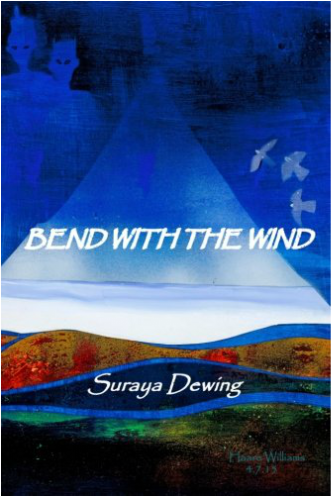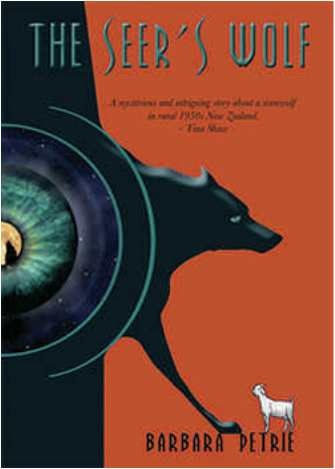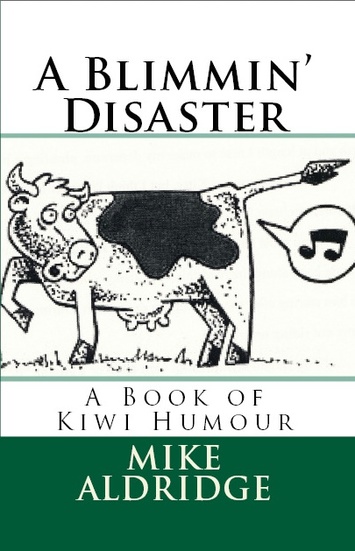
Bend With the Wind
by Suraya Dewing
Bend With the Wind evolves around several interwoven story lines of conflict and deep rooted prejudices. This is in direct contrast to the title – the translation of a Maori proverb advising passive resistance to aggressors.
Dewing has used a deceptively simple narrative style to relate the story of Sophie Gardner’s time as a first year student at Auckland University in the weeks leading up to and during the 1981 protests against the Springbok rugby tour of New Zealand.
Intrigued by the recent protest on Bastion Point (Auckland), Sophie rebels against her fiercely right-wing father. She enrols in classes in New Zealand history and is soon, with her friends Lucy and Clara, an ardent – and eventually violent – anti-racist-tour and anti-apartheid protestor. Dewing’s low-key development of the three young Pakeha women leaves them as seemingly shallow figures, while her treatment of Joe Ra, a young Maori policeman from rural Taranaki, is much deeper and more complex. Sophie and Joe’s relationship develops against the backdrop of the anti-tour protests. Sophie, Lucy and Clara seem to be swept up and along with the tide of more radical protestors, while Joe struggles with the implications of his involvement with a Pakeha girl who is free to demonstrate against the tour, while he, although innately anti-apartheid, is obliged as a policeman to concentrate all his energies on keeping the pro-tour and anti-tour demonstrators apart.
Interspersed in the chronicle of the Springbok tour, the protests and riots, are Sophie and Joe’s visits to his family in Parihaka in Taranaki. Even here there is conflict – not everyone in Joe’s family welcomes a Pakeha girl – and looming, as if it had happened in the last decade rather than a century ago, is the dark memory of the colonial taking of Maori land and the passive resistance movement against the British that was led by chiefs Tohu Kakahi and Te Whiti-O-Rongomai in 1880-81.
As Bend With the Wind unfolds it becomes four distinct but interconnected stories. The anti-tour protest runs parallel to the tale of Joe and Sophie’s relationship. From the first chapter however there is also the 30-year jump forward in time to Joe’s untimely death and his tangi on the marae at Parihaka, while with ever-building tension we are taken a century back in time to colonial-era events in Parihaka. Dewing has skilfully created a unified fabric from these four threads. The intricate and poetic way in which she describes Joe’s death and tangi is deeply moving as is her telling of the tragedy at Parihaka in November 1881. Both these threads and descriptions of Sophie and Joe’s visits to his family are authenticated by frequent use of Maori, with English translations as footnotes.
Many readers will remember the 1981 Springbok rugby tour and the way New Zealand was polarised over it. Wounds that were inflicted then took a long time to heal and pro-tour readers may either be enraged by Bend With the Wind or vindicated by the descriptive scenes of mindless anti-tour violence. Anti-tour readers will doubtlessly relive those heady days under the leadership of John Minto, Trevor Richards and Syd Jackson. Supporters of New Zealand’s police force will be sympathetic to Joe’s turmoil and his suffering in the aftermath of the tour. Towards the end of the book, Sophie wonders “if the tour will ever go away”. For some readers the feeling may be that the tour has never “gone away” and that this book is a disturbing historical comment on the evolution of New Zealand’s society.
Bend With the Wind’s publication is very timely: 2016 is the 35th anniversary of the Springbok tour and the 135th anniversary of the passively resisted colonial occupation of Maori land at Parihaka. Dewing’s account of that event adds considerable weight to the argument that Guy Fawkes Night could perhaps be replaced now with a more significant Kiwi celebration.
Author: Suraya Dewing
Publisher: Rangitawa Publishing, Feilding, 2015
ISBN: 978-0-9941201
Formats: Paperback
Available from: Unity Books, Amazon, Rangitawa Publishing




 RSS Feed
RSS Feed
